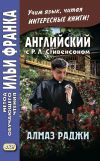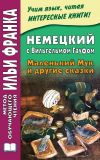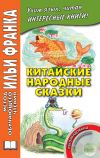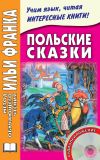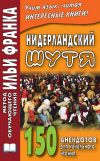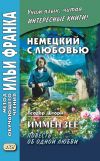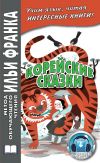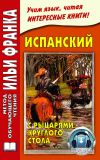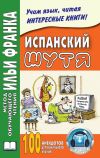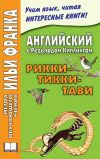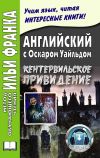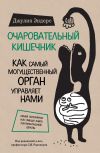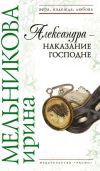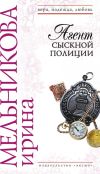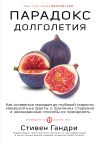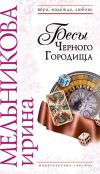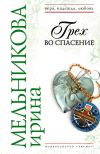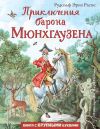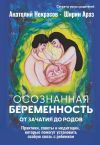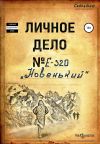
Автор книги: Энтони Хоуп
Жанр: Иностранные языки, Наука и Образование
Возрастные ограничения: 16+
сообщить о неприемлемом содержимом
Chapter 8
A Fair Cousin and a Dark Brother
(Светловолосая кузина и темноволосый брат)
A real king’s life is perhaps a hard one (жизнь настоящего короля, по всей видимости, трудна); but a pretended king’s is, I warrant, much harder (но жизнь /человека/, выдающего себя за короля, я ручаюсь, намного труднее; to pretend – притворяться; разыгрывать из себя, прикидываться; to warrant – давать подтверждение, гарантировать; ручаться). On the next day, Sapt instructed me in my duties – for three hours (на следующий день Сэпт в течение трех часов рассказывал мне о моих обязанностях; to instruct – учить, обучать) – what I ought to do and what I ought to know (что я должен делать и что должен знать); then I snatched breakfast, with Sapt still opposite me, telling me (потом я проглотил завтрак, и Сэпт, все еще /сидя/ напротив, рассказывал мне; to snatch – хватать, ухватить) that the King always took white wine in the morning (что король всегда пьет белое вино по утрам) and was known to detest all highly seasoned dishes (и, как известно, питает отвращение ко всем острым блюдам; highly seasoned dishes – острые блюда; to season – приправлять /пищу/; highly – весьма, чрезвычайно). Then came the Chancellor, for another three hours (потом еще на три часа пришел канцлер); and to him I had to explain that the hurt to my finger (и мне пришлось объяснить ему, что мой ушибленный палец) (we turned that bullet to happy account) prevented me from writing ((мы обернули /случай/ с пулей себе на пользу) не позволяет мне писать; to turn smth. to smth. – превратить что-л. во что-л.; happy – счастливый; удачный, благоприятный; account – счет /в банке/; выгода, польза; to prevent – предотвращать, предупреждать; мешать, препятствовать) – whence arose great to-do, hunting of precedents and so forth, ending in my “making my mark” (из-за этого возник большой шум, поиск прецедентов и тому подобного; все закончилось тем, что вместо подписи я ставил крестик; to-do – суматоха, суета; to hunt – охотиться; рыскать, искать; to make one’s mark – ставить крестик вместо подписи; mark – метка, знак; крест /вместо подписи неграмотного/), and the Chancellor attesting it with a superfluity of solemn oaths (а канцлер заверил его обилием торжественных клятв). Then the French ambassador was introduced, to present his credentials (затем я принял французского посла, представившего свои верительные грамоты; to introduce – вводить, вставлять; представлять, знакомить); here my ignorance was of no importance (здесь моя неосведомленность не имела никакого значения; to be of no importance – не иметь никакой важности; ничего не значить), as the King would have been equally raw to the business (поскольку король равным образом был несведущ в таких делах; raw – сырой; неопытный, несведущий /разг./) (we worked through the whole corps diplomatique in the next few days (за последующие несколько дней мы перезнакомились со всем дипломатическим корпусом; to work through – прорабатывать), a demise of the Crown necessitating all this bother (наследование престола неизбежно влекло за собой все эти хлопоты; demise of the crown – переход престола наследнику)).

A real king’s life is perhaps a hard one; but a pretended king’s is, I warrant, much harder. On the next day, Sapt instructed me in my duties – what I ought to do and what I ought to know – for three hours; then I snatched breakfast, with Sapt still opposite me, telling me that the King always took white wine in the morning and was known to detest all highly seasoned dishes. Then came the Chancellor, for another three hours; and to him I had to explain that the hurt to my finger (we turned that bullet to happy account) prevented me from writing – whence arose great to-do, hunting of precedents and so forth, ending in my “making my mark,” and the Chancellor attesting it with a superfluity of solemn oaths. Then the French ambassador was introduced, to present his credentials; here my ignorance was of no importance, as the King would have been equally raw to the business (we worked through the whole corps diplomatique in the next few days, a demise of the Crown necessitating all this bother).
Then, at last, I was left alone (потом, наконец, меня оставили в покое). I called my new servant (я крикнул своему новому слуге) (we had chosen, to succeed poor Josef, a young man (мы выбрали преемником бедняги Жозефа молодого парня; to choose; to succeed – достигнуть цели, добиться; наследовать, быть преемником) who had never known the King (который никогда не знал короля)), had a brandy-and-soda brought to me (чтобы принес мне бренди с содовой), and observed to Sapt that I trusted that I might now have a rest (и заметил Сэпту, что, надеюсь, могу теперь отдохнуть: «иметь отдых»; to trust – доверять, верить; надеяться, полагать). Fritz von Tarlenheim was standing by (Фриц фон Тарленхайм стоял рядом).
“By heaven!” he cried, “we waste time (ей-богу, мы теряем время). Aren’t we going to throw Black Michael by the heels (неужели мы не собираемся бросить Черного Михаэля в темницу; to throw – бросать, кидать; to clap/lay smb. by the heels – схватить, посадить в тюрьму кого-л.)?”
“Gently, my son, gently,” said Sapt, knitting his brows (тише, сынок, тише, – сказал Сэпт, хмуря брови; gently – мягко, нежно; тише! легче!). “It would be a pleasure, but it might cost us dear (это удовольствие могло бы нам дорого стоить). Would Michael fall and leave the King alive (неужели Михаэль сам погибнет, а короля в живых оставит; to fall – падать; гибнуть)?”
“And,” I suggested, “while the King is here in Strelsau, on his throne (и, – высказался: «предположил» я, – пока король здесь, в Стрелсо, на своем троне), what grievance has he against his dear brother Michael (что он имеет против своего дорого брата Михаэля; grievance – обида, повод для недовольства)?”
“Are we to do nothing, then (выходит, мы ничего не должны делать)?”
“We’re to do nothing stupid,” growled Sapt (мы не должны делать никаких глупостей: «ничего глупого»).

Then, at last, I was left alone. I called my new servant (we had chosen, to succeed poor Josef, a young man who had never known the King), had a brandy-and-soda brought to me, and observed to Sapt that I trusted that I might now have a rest. Fritz von Tarlenheim was standing by.
“By heaven!” he cried, “we waste time. Aren’t we going to throw Black Michael by the heels?”
“Gently, my son, gently,” said Sapt, knitting his brows. “It would be a pleasure, but it might cost us dear. Would Michael fall and leave the King alive?”
“And,” I suggested, “while the King is here in Strelsau, on his throne, what grievance has he against his dear brother Michael?”
“Are we to do nothing, then?”
“We’re to do nothing stupid,” growled Sapt.
“In fact, Fritz,” said I, “I am reminded of a situation in one of our English plays – The Critic (к тому же, Фриц, мне это напоминает ситуацию из одной нашей английской пьесы – «Критик») – have you heard of it (вы не слышали о ней)? Or, if you like, of two men, each covering the other with a revolver (или, если хотите, двух людей, целящихся друг в друга из револьвера). For I can’t expose Michael without exposing myself (потому что я не могу разоблачить Михаэля, не раскрыв себя) – ”
“And the King,” put in Sapt (и короля, – вставил Сэпт).
“And, hang me if Michael won’t expose himself (и, будь я проклят, если Михаэль не раскроет себя сам), if he tries to expose me (если попытается разоблачить меня)!”
“It’s very pretty (очень мило),” said old Sapt.
“If I’m found out,” I pursued (если меня раскроют, – продолжал я), “I will make a clean breast of it, and fight it out with the duke (я чистосердечно во всем признаюсь и этого герцогу так не оставлю; to make a clean breast of smth. – чистосердечно признаваться в чем-л.; to fight smth. out – довести борьбу/спор до конца; to fight – драться, сражаться, бороться); but at present I’m waiting for a move from him (но в данный момент я жду шага с его стороны).”
“He’ll kill the King (он убьет короля),” said Fritz.
“Not he,” said Sapt (нет, – сказал Сэпт).
“Half of the Six are in Strelsau (половина = трое из Шестерых в Стрелсо),” said Fritz.
“Only half? You’re sure?” asked Sapt eagerly (только трое, вы уверены? – нетерпеливо спросил Сэпт).
“Yes – only half (да, только трое).”
“Then the King’s alive, for the other three are guarding him (значит король жив, потому что оставшиеся трое стерегут его)!” cried Sapt.

“In fact, Fritz,” said I, “I am reminded of a situation in one of our English plays – The Critic – have you heard of it? Or, if you like, of two men, each covering the other with a revolver. For I can’t expose Michael without exposing myself – ”
“And the King,” put in Sapt.
“And, hang me if Michael won’t expose himself, if he tries to expose me!”
“It’s very pretty,” said old Sapt.
“If I’m found out,” I pursued, “I will make a clean breast of it, and fight it out with the duke; but at present I’m waiting for a move from him.”
“He’ll kill the King,” said Fritz.
“Not he,” said Sapt.
“Half of the Six are in Strelsau,” said Fritz.
“Only half? You’re sure?” asked Sapt eagerly.
“Yes – only half.”
“Then the King’s alive, for the other three are guarding him!” cried Sapt.
“Yes – you’re right!” exclaimed Fritz, his face brightening (да, вы правы! – воскликнул Фриц, и его лицо просветлело). “If the King were dead and buried (если бы король был мертв и похоронен), they’d all be here with Michael (они все были бы здесь с Михаэлем). You know Michael’s back, colonel (вы знаете, что Михаэль вернулся, полковник)?”
“I know, curse him (знаю, будь он проклят)!”
“Gentlemen, gentlemen,” said I, “who are the Six (джентльмены, – сказал я, – кто эти Шестеро)?”
“I think you’ll make their acquaintance soon (думаю, вы скоро познакомитесь),” said Sapt. “They are six gentlemen whom Michael maintains in his household (это шесть джентльменов, которых Михаэль содержит у себя при дворе): they belong to him body and soul (они преданы ему душой и телом; to belong – принадлежать). There are three Ruritanians; then there’s a Frenchman, a Belgian, and one of your countrymen (трое руританцев, потом – француз, бельгиец и один из ваших соотечественников).”
“They’d all cut a throat if Michael told them (они бы все перерезали глотку /кому-угодно/, если бы Михаэль приказал),” said Fritz.
“Perhaps they’ll cut mine,” I suggested (возможно, они перережут мою, – предположил я).
“Nothing more likely,” agreed Sapt (очень даже возможно: «нет ничего более вероятного», – согласился Сэпт). “Who are here, Fritz (кто /из них/ здесь, Фриц)?”
“De Gautet, Bersonin, and Detchard (Де Готе, Берзонин и Дэтчард).”
“The foreigners (иностранцы)! It’s as plain as a pikestaff (это же ясно как день: «гладко, как древко копья»; plain – ясный, очевидный; гладкий, ровный). He’s brought them, and left the Ruritanians with the King (их он взял /с собой/, а руританцев оставил с королем); that’s because he wants to commit the Ruritanians as deep as he can (это потому, что он хочет, чтобы руританцы увязли /в этом деле/ так же глубоко, как и он; to commit – поручать, вверять; связать обязательствами).”

“Yes – you’re right!” exclaimed Fritz, his face brightening. “If the King were dead and buried, they’d all be here with Michael. You know Michael’s back, colonel?”
“I know, curse him!”
“Gentlemen, gentlemen,” said I, “who are the Six?”
“I think you’ll make their acquaintance soon,” said Sapt. “They are six gentlemen whom Michael maintains in his household: they belong to him body and soul. There are three Ruritanians; then there’s a Frenchman, a Belgian, and one of your countrymen.”
“They’d all cut a throat if Michael told them,” said Fritz.
“Perhaps they’ll cut mine,” I suggested.
“Nothing more likely,” agreed Sapt. “Who are here, Fritz?”
“De Gautet, Bersonin, and Detchard.”
“The foreigners! It’s as plain as a pikestaff. He’s brought them, and left the Ruritanians with the King; that’s because he wants to commit the Ruritanians as deep as he can.”
“They were none of them among our friends at the lodge, then (а никто из них не был среди наших друзей там, у домика)?” I asked.
“I wish they had been,” said Sapt wistfully (жаль, что их там не было, – сказал Сэпт задумчиво). “They had been, not six, but four, by now (их бы теперь было не шестеро, а четверо; by now – к этому времени, теперь).”
I had already developed one attribute of royalty (во мне уже проявилось одно характерное свойство королевской власти; to develop – развивать, совершенствовать; проявлять, обнаруживать; attribute – свойство, характерный признак, атрибут) – a feeling that I need not reveal all my mind or my secret designs (ощущение, что мне не нужно открывать все свои намерения и тайные замыслы; mind – ум, разум; намерение, желание) even to my intimate friends (даже своим близким друзьям). I had fully resolved on my course of action (я уже полностью решил, как мне действовать; course of action – образ действия). I meant to make myself as popular as I could (я намеревался приобрести как можно больше популярности; to mean), and at the same time to show no disfavour to Michael (и в то же время не выказывать неприязни к Михаэлю). By these means I hoped to allay the hostility of his adherents (этими средствами я надеялся снизить враждебное отношение его приверженцев; to allay – уменьшать, ослаблять), and make it appear, if an open conflict came about (и сделать, чтобы это выглядело так, если произойдет открытое столкновение; conflict – конфликт, столкновение), that he was ungrateful and not oppressed (будто он /просто/ неблагодарный, а /вовсе/ не угнетенный).
Yet an open conflict was not what I hoped for (однако открытое столкновение было не тем, на что я надеялся).
The King’s interest demanded secrecy (интересы короля требовали секретности); and while secrecy lasted, I had a fine game to play in Strelsau (и пока секретность сохранялась, мне было чем заняться в Стрелсо; to last – продолжаться, длиться; сохраняться; fine – хороший, прекрасный; game – игра; замысел, дело), Michael should not grow stronger for delay (Михаэль не должен стать сильнее из-за /нашей/ медлительности; for – для; из-за, по причине; delay – отсрочка, задержка; замедление, промедление)!

“They were none of them among our friends at the lodge, then?” I asked.
“I wish they had been,” said Sapt wistfully. “They had been, not six, but four, by now.”
I had already developed one attribute of royalty – a feeling that I need not reveal all my mind or my secret designs even to my intimate friends. I had fully resolved on my course of action. I meant to make myself as popular as I could, and at the same time to show no disfavour to Michael. By these means I hoped to allay the hostility of his adherents, and make it appear, if an open conflict came about, that he was ungrateful and not oppressed.
Yet an open conflict was not what I hoped for.
The King’s interest demanded secrecy; and while secrecy lasted, I had a fine game to play in Strelsau, Michael should not grow stronger for delay!
I ordered my horse, and, attended by Fritz von Tarlenheim (я приказал /оседлать/ моего коня, и, сопровождаемый Фрицем фон Тарленхаймом; to attend – посещать, присутствовать; сопровождать), rode in the grand new avenue of the Royal Park (поехал по великолепной новой аллее Королевского парка), returning all the salutes which I received with punctilious politeness (кланяясь в ответ: «отвечая» на все приветствия с педантичной учтивостью; to return – возвращать, отдавать назад; отвечать). Then I rode through a few of the streets (потом я проехал по нескольким улицам), stopped and bought flowers of a pretty girl (остановился и купил цветы у симпатичной девицы), paying her with a piece of gold (расплатившись с ней золотом; piece – кусок, часть; некоторое количество); and then, having attracted the desired amount of attention (а затем, /когда/ привлек желаемое внимание; amount – количество) (for I had a trail of half a thousand people after me (ибо за мной тянулся хвост человек в пятьсот)), I rode to the residence of the Princess Flavia (я поехал к дому принцессы Флавии), and asked if she would receive me (и спросил, не примет ли она меня). This step created much interest (этот шаг вызвал огромный интерес; to create – создавать, творить; вызывать, произвести), and was met with shouts of approval (и был встречен криками одобрения; to meet). The princess was very popular (принцесса была очень популярна = принцессу очень любили в народе), and the Chancellor himself had not scrupled to hint to me (и сам канцлер, не стесняясь, намекнул мне) that the more I pressed my suit (что чем больше я проявлю настойчивости; to press one’s suit – добиваться благосклонности; to press – давить, нажимать; настаивать; suit – прошение, ходатайство; сватовство, ухаживание), and the more rapidly I brought it to a prosperous conclusion (и чем скорее доведу это до успешного завершения; to bring to a conclusion – довести до конца, завершить; prosperous – процветающий; успешный, удачный), the stronger should I be in the affection of my subjects (тем сильнее будут любить меня мои подданные; affection – любовь, расположение; subject – объект, предмет; подданный). The Chancellor, of course, did not understand the difficulties (канцлер, конечно же, не понимал /всех/ трудностей) which lay in the way of following his loyal and excellent advice (которые лежали бы на моем пути, последуй я: «которые лежали на пути следования» его верному и превосходному совету).

I ordered my horse, and, attended by Fritz von Tarlenheim, rode in the grand new avenue of the Royal Park, returning all the salutes which I received with punctilious politeness. Then I rode through a few of the streets, stopped and bought flowers of a pretty girl, paying her with a piece of gold; and then, having attracted the desired amount of attention (for I had a trail of half a thousand people after me), I rode to the residence of the Princess Flavia, and asked if she would receive me. This step created much interest, and was met with shouts of approval. The princess was very popular, and the Chancellor himself had not scrupled to hint to me that the more I pressed my suit, and the more rapidly I brought it to a prosperous conclusion, the stronger should I be in the affection of my subjects. The Chancellor, of course, did not understand the difficulties which lay in the way of following his loyal and excellent advice.
However, I thought I could do no harm by calling (и все же я подумал, что не причиню вреда /своим/ визитом; to call – звать, окликать; заходить, навещать); and in this view Fritz supported me with a cordiality that surprised me (и в этом намерении Фриц от всей души поддержал меня, чему я /изрядно/ удивился; view – вид, пейзаж; намерение; cordiality – сердечность, радушие), until he confessed that he also had his motives for liking a visit to the princess’s house (пока он не признался, что у него тоже есть свои причины желать визита в дом принцессы; motive – повод, мотив), which motive was no other than a great desire (и этой причиной было не что другое, как огромное желание) to see the princess’s lady-in-waiting and bosom friend, the Countess Helga von Strofzin (повидать придворную даму и близкую подругу принцессы графиню Хельгу фон Штрофцин).
Etiquette seconded Fritz’s hopes (этикет выступал в поддержку чаяний Фрица). While I was ushered into the princess’s room (когда меня проводили в комнату принцессы), he remained with the countess in the ante-chamber (он с графиней остался в приемной): in spite of the people and servants who were hanging about (несмотря на придворных и слуг, которые слонялись повсюду; people – народ; люди; подданные), I doubt not that they managed a tête-à-tête (я не сомневаюсь, что им удалось уединиться; tête-à-tête – свидание, разговор наедине /фр./); but I had no leisure to think of them (но у меня не было времени, чтобы думать о них; leisure – досуг, свободное время), for I was playing the most delicate move in all my difficult game (потому что я делал самый тонкий ход во всей своей сложной игре). I had to keep the princess devoted to me (мне нужно было, чтобы принцесса испытывала ко мне привязанность; to keep – держать, хранить; держать /кого-л., что-л./ в /каком-л./ состоянии; devoted – преданный, нежный) – and yet indifferent to me (и, в то же время, /оставалась/ безразличной ко мне): I had to show affection for her – and not feel it (я должен был выказывать любовь /по отношению/ к ней – и не чувствовать этой любви: «ее»). I had to make love for another, and that to a girl who – princess or no princess (мне приходилось ухаживать за другого /человека/ и ухаживать за девушкой, которая – /неважно/, принцесса она или нет; to make love – ухаживать за кем-л.; for – для, ради; вместо, за) – was the most beautiful I had ever seen (была самой прекрасной, которую я когда-либо видел).

However, I thought I could do no harm by calling; and in this view Fritz supported me with a cordiality that surprised me, until he confessed that he also had his motives for liking a visit to the princess’s house, which motive was no other than a great desire to see the princess’s lady-in-waiting and bosom friend, the Countess Helga von Strofzin.
Etiquette seconded Fritz’s hopes. While I was ushered into the princess’s room, he remained with the countess in the ante-chamber: in spite of the people and servants who were hanging about, I doubt not that they managed a tête-à-tête; but I had no leisure to think of them, for I was playing the most delicate move in all my difficult game. I had to keep the princess devoted to me – and yet indifferent to me: I had to show affection for her – and not feel it. I had to make love for another, and that to a girl who – princess or no princess – was the most beautiful I had ever seen.
Well, I braced myself to the task (итак, я был готов выполнить задачу; to brace oneself to/for a task – приготовиться к выполнению задания; to brace – связывать, скреплять; напрячь /силы, волю/), made no easier by the charming embarrassment with which I was received (/которую/ не облегчало то очаровательное смущение, с которым я был принят; easy – легкий, нетрудный). How I succeeded in carrying out my programme will appear hereafter (как я преуспел в выполнении своего плана, станет ясно впоследствии; to appear – показываться, появляться; явствовать).
“You are gaining golden laurels (вы купаетесь в славе: «получаете золотые лавры»; to gain laurels – стяжать славу, прославиться),” she said. “You are like the prince in Shakespeare who was transformed by becoming king (вы похожи на принца у Шекспира, который изменился, став королем). But I’m forgetting you are King, sire (но я забываю, что вы король, сир).”
“I ask you to speak nothing but what your heart tells you (прошу вас не говорить ничего, кроме того, что вам подсказывает сердце) – and to call me nothing but my name (и звать меня не иначе, как по имени).”
She looked at me for a moment (с минуту она глядела на меня).
“Then I’m glad and proud, Rudolf (в таком случае я рада и счастлива, Рудольф; proud – гордый; испытывающий чувство гордости),” said she. “Why, as I told you, your very face is changed (ведь, как я вам говорила, даже ваше лицо изменилось).”
I acknowledged the compliment, but I disliked the topic; so I said (я поблагодарил за комплимент, но тема мне не нравилась, поэтому я сказал; to acknowledge – признавать, допускать; выражать признательность /за что-л./):
“My brother is back, I hear (мой брат вернулся, как я слышал). He made an excursion, didn’t he (он ездил куда-то: «совершал экскурсию», не так ли)?”
“Yes, he is here,” she said, frowning a little (да, он здесь, – ответила она, слегка хмурясь).
“He can’t stay long from Strelsau, it seems,” I observed, smiling (он, кажется, не может долго находиться /вдали/ от Стрелсо). “Well, we are all glad to see him (ну, мы все рады видеть его). The nearer he is, the better (чем он ближе, тем лучше).”

Well, I braced myself to the task, made no easier by the charming embarrassment with which I was received. How I succeeded in carrying out my programme will appear hereafter.
“You are gaining golden laurels,” she said. “You are like the prince in Shakespeare who was transformed by becoming king. But I’m forgetting you are King, sire.”
“I ask you to speak nothing but what your heart tells you – and to call me nothing but my name.”
She looked at me for a moment.
“Then I’m glad and proud, Rudolf,” said she. “Why, as I told you, your very face is changed.”
I acknowledged the compliment, but I disliked the topic; so I said:
“My brother is back, I hear. He made an excursion, didn’t he?”
“Yes, he is here,” she said, frowning a little.
“He can’t stay long from Strelsau, it seems,” I observed, smiling. “Well, we are all glad to see him. The nearer he is, the better.”
The princess glanced at me with a gleam of amusement in her eyes (принцесса взглянула на меня с веселым блеском в глазах; gleam – проблеск; вспышка /веселья, юмора/; amusement – забава, развлечение).
“Why, cousin (почему, кузен)? Is it that you can (это потому, что вы можете) —?”
“See better what he’s doing? Perhaps (лучше видеть, чем он занимается? возможно),” said I. “And why are you glad (а чему вы радуетесь)?”
“I didn’t say I was glad,” she answered (я не говорила, что радуюсь, – ответила она).
“Some people say so for you (некоторые люди говорят это за вас).”
“There are many insolent people,” she said, with delightful haughtiness (есть много наглецов, – сказала она с очаровательным высокомерием).
“Possibly you mean that I am one (вы, вероятно, имеете в виду и меня: «что я один /из них/»)?”
“Your Majesty could not be,” she said, curtseying in feigned deference (ваше величество не смогли бы быть /таким/, – сказала она, делая реверанс с притворной почтительностью), but adding, mischievously, after a pause: “Unless, that is (но, помолчав: «после паузы», лукаво добавила, – если не…) – ”
“Well, unless what (ну, если не что)?”
“Unless you tell me that I mind a snap of my fingers (если вы не скажете мне, что меня хоть немного волнует; to mind – беспокоиться, тревожиться; snap of fingers – щелчок пальцами) where the Duke of Strelsau is (где находится герцог Стрелсо).”
Really, I wished that I had been the King (мне, право, было жаль, что я не король).
“You don’t care where cousin Michael (вам безразлично, где кузен Михаэль) – ”
“Ah, cousin Michael (ах, кузен Михаэль)! I call him the Duke of Strelsau (я называю его герцогом Стрелсо).”

The princess glanced at me with a gleam of amusement in her eyes.
“Why, cousin? Is it that you can —?”
“See better what he’s doing? Perhaps,” said I. “And why are you glad?”
“I didn’t say I was glad,” she answered.
“Some people say so for you.”
“There are many insolent people,” she said, with delightful haughtiness.
“Possibly you mean that I am one?”
“Your Majesty could not be,” she said, curtseying in feigned deference, but adding, mischievously, after a pause: “Unless, that is – ”
“Well, unless what?”
“Unless you tell me that I mind a snap of my fingers where the Duke of Strelsau is.”
Really, I wished that I had been the King.
“You don’t care where cousin Michael – ”
“Ah, cousin Michael! I call him the Duke of Strelsau.”
“You call him Michael when you meet him (вы называете его Михаэлем, когда встречаетесь с ним)?”
“Yes – by the orders of your father (да, согласно повелению: «приказаниям» вашего отца).”
“I see (понимаю). And now by mine (а теперь согласно моему /повелению/)?”
“If those are your orders (если вам так будет угодно: «если такими будут ваши приказания»).”
“Oh, decidedly (о, несомненно; decidedly – решительно; бесспорно, несомненно)! We must all be pleasant to our dear Michael (мы все должны быть любезны с нашим дорогим Михаэлем).”
“You order me to receive his friends, too, I suppose (вы приказываете мне также принимать его друзей, я полагаю)?”
“The Six (Шестерых)?”
“You call them that, too (вы их тоже так называете)?”
“To be in the fashion, I do (называю, чтобы следовать моде). But I order you to receive no one unless you like (но я приказываю вам не принимать никого, если вам /этого/ не хочется; unless – если не, пока не; to like – нравиться, любить; хотеть /в отриц. предложениях/).”
“Except yourself (за исключением вас)?”
“I pray for myself (я прошу за себя; to pray – молиться; просить). I could not order (я не смог бы приказывать).”
As I spoke, there came a cheer from the street (когда я говорил, с улицы донеслись приветственные возгласы). The princess ran to the window (принцесса подбежала к окну).
“It is he!” she cried (это он, – вскричала она). “It is – the Duke of Strelsau (это герцог Стрелсо)!”

“You call him Michael when you meet him?”
“Yes – by the orders of your father.”
“I see. And now by mine?”
“If those are your orders.”
“Oh, decidedly! We must all be pleasant to our dear Michael.”
“You order me to receive his friends, too, I suppose?”
“The Six?”
“You call them that, too?”
“To be in the fashion, I do. But I order you to receive no one unless you like.”
“Except yourself?”
“I pray for myself. I could not order.”
As I spoke, there came a cheer from the street. The princess ran to the window.
“It is he!” she cried. “It is – the Duke of Strelsau!”
I smiled, but said nothing (я улыбнулся, но ничего не сказал). She returned to her seat (она вернулась на свое место). For a few moments we sat in silence (несколько минут мы сидели молча: «в тишине»). The noise outside subsided (шум снаружи утих), but I heard the tread of feet in the ante-room (но я услыхал звук шагов в передней; tread – походка; звук шагов; feet – мн. ч. от foot – ступня; нога). I began to talk on general subjects (я принялся: «начал» говорить на общие темы). This went on for some minutes (это продолжалось несколько минут). I wondered what had become of Michael (мне было интересно, что случилось с Михаэлем), but it did not seem to be for me to interfere (но, по-видимому, мне не нужно было вмешиваться; to seem – казаться, представляться; to be – быть; как модальный глагол с последующим инфинитивом означает долженствование, возможность, намерение). All at once, to my great surprise, Flavia (вдруг, к моему великому удивлению, Флавия), clasping her hands asked in an agitated voice (всплеснув руками, спросила взволнованным голосом; to clasp hands – стискивать пальцы, складывать руки /в мольбе/; to clasp – застегивать, скреплять; сжимать):
